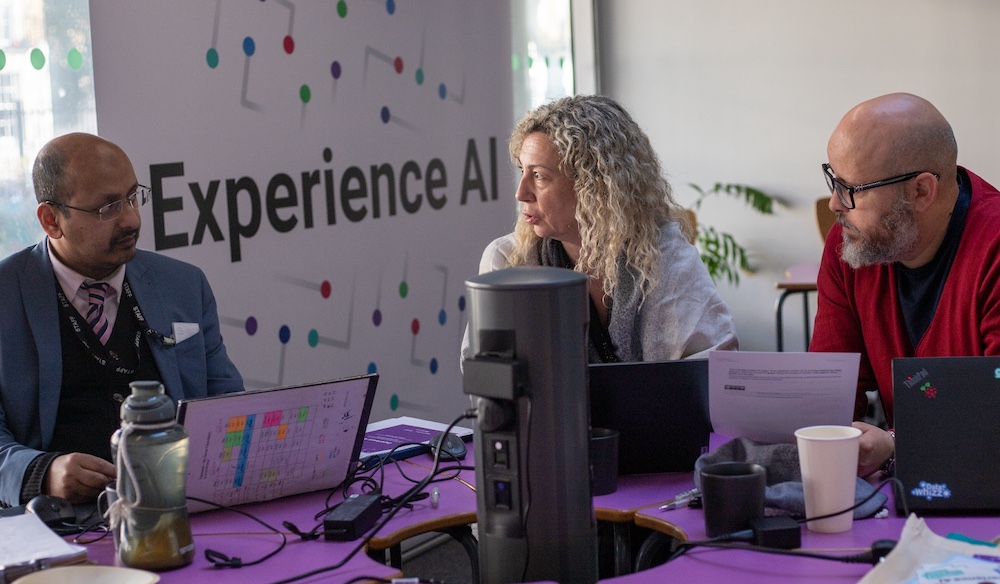Insights from a teacher trainer: Schools are ready to engage in AI — what they need is support
Today’s blog post is written by Dan Shilling, Programmes Manager at Parent Zone, one of our global partners for Experience AI.
“Educators have been struggling to find resources and support to teach young people about AI.”
This is something I’ve heard a lot when delivering Experience AI teacher training through Parent Zone’s partnership with the Raspberry Pi Foundation.

Our partnership with the Raspberry Pi Foundation
Experience AI is an artificial intelligence (AI) literacy programme, co-developed by the Raspberry Pi Foundation and Google DeepMind, that teaches students aged 11 to 14 about AI and machine learning. Thanks to funding from Google.org, Parent Zone has partnered with the Raspberry Pi Foundation to provide free training to UK educators, equipping them with the skills they need to effectively deliver the programme in their settings.
The Experience AI resources help educators, including those from non-technical backgrounds, to deliver impactful lessons on AI and machine learning. Lesson resources span technical elements (e.g. data-driven models, bias) and practical elements (e.g. careers, safety).
Our face-to-face and virtual training sessions show teachers how to use the programme resources, as well as helping them feel more confident in the subject matter.
The sessions also give me an opportunity to hear from teachers about how AI is being used and taught in classrooms, and the opportunities and challenges it’s creating.

Curiosity and experimentation
AI has a major presence in many schools now.
Teachers tell me they’re seeing students use AI to support their homework. One teacher spoke about a student using a chatbot to help break down a maths problem, describing it like “having a tutor at home.”
Teachers are also using AI themselves to assist in their work — for example, to plan lessons, generate activities, and get ideas on how to explain complex topics more clearly.
Openness to experimentation is clearly there.

Addressing concerns
For all the benefits of AI, teachers also have concerns about it.
Some have told me their students have no idea how easily these tools can be used to mislead or manipulate, through disinformation and deepfakes, for example.
This is why Experience AI resources are meeting educator needs. Not only do they explain how AI and machine learning actually work, but they also address many pressing concerns around AI, from responsible usage and media literacy, to how data bias can affect the final output.
Positive changes
In all the workshops, what stands out to me most is how ready teachers are to engage. They want to understand more. They want to help their students make sense of AI, and use it positively.
They’re grateful for practical, grounded training and support that doesn’t assume they’ve all got computer science degrees. After one of our sessions, a teacher said:
“The better we educate ourselves, the better we’re able to help young people. It’s important because it’s affecting their day-to-day lives. We can help them navigate AI platforms, but in a safe way.”

Join a network of AI-ready educators
If you’re a UK secondary school teacher, you can sign up for free training from Parent Zone, with dates available until November 2025. You can choose from:
- Full-day sessions at the Google AI Campus in London
- In school full-day sessions
- Remote, online workshops (full and half-days)
For more information about Experience AI, visit our website.







No comments